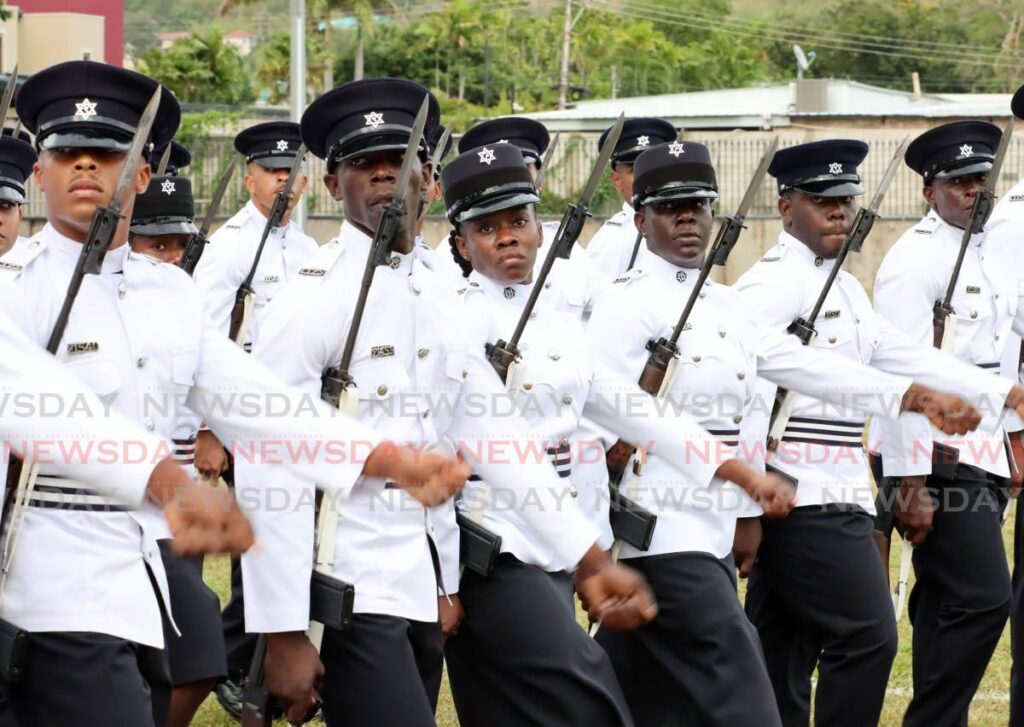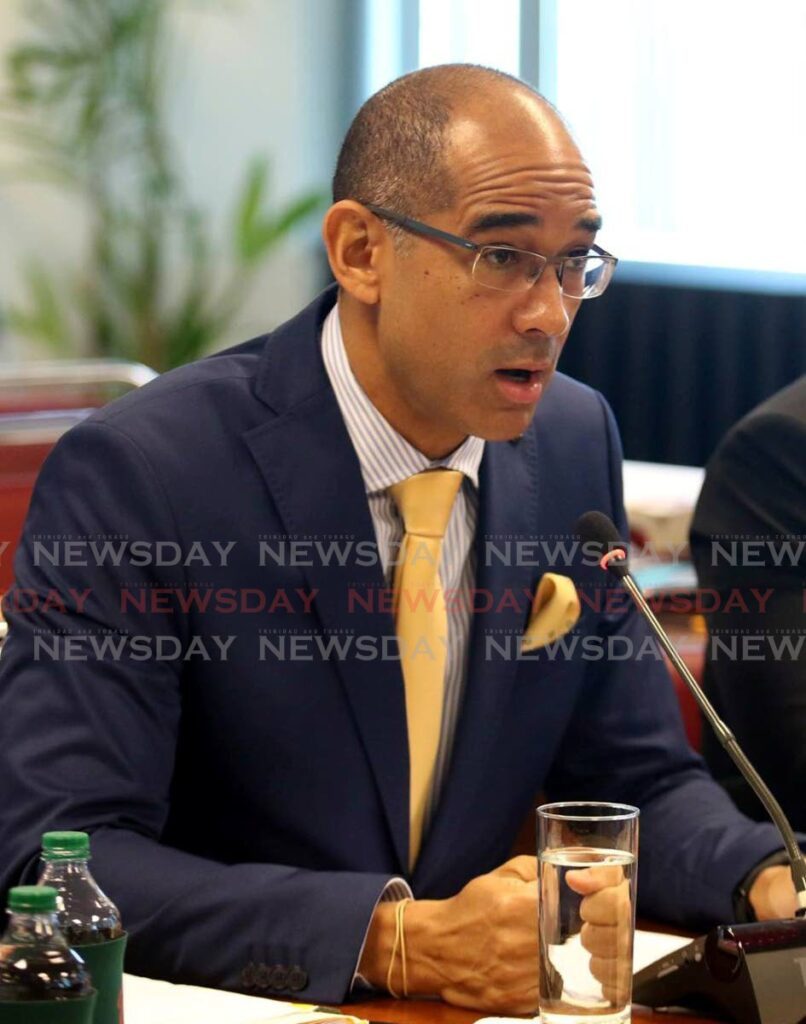PCA director: Polygraph tests can weed out bad cops

POLICE Complaints Authority (PCA) director David West calls the passing of the polygraph bill in the lower house a positive step towards rooting out bad eggs in the police service.
“It is a move the PCA welcomes. Once it is administered properly, it is an effective tool. Most protective services worldwide use polygraphing,” West said.
Speaking with Newsday via cellphone on June 22, West described it as a tool that can also be used to root out corruption in any public service.
On June 21, the government and opposition in an unusual move teamed up and unanimously passed a bill which needed 25 votes. The bill authorises the use of polygraph tests, drug testing and biometric identification for members of the protective services, as well as certain offices within the Judicial and Legal Service and the civil service.
West said, “It can lead to a better, more trustworthy service and a trusting public.”
West, an attorney, said he is not a specialist but believes it should be used regularly within the police and suggested a "bi-annual testing for regular officers," and officers operating in “sensitive units” should be polygraphed frequently.
Retired UWI lecturer Darius Figuera also supports the bill but believes it should have been passed many years ago. He called it a necessary instrument that needs to be used often, to understand its effectiveness.
“We have a serious transnational organised crime problem. The bill is late if you intend to police your national security apparatus to keep ahead of organised crime.”
Figuera said, while the bill makes polygraph testing compulsory, it is how those in charge use it, to get a clear idea of what is going on with organised crime in the national security system. He said its effectiveness will be determined in the future.
“Every bill has to be exercised fully in order for it to be effective.”
President of the Police Second Division Association ASP Gideon Dickson was not available to comment on June 22 but intends to issue a statement on the development.
The Prime Minister, during his contribution to the bill in Parliament on June 21, said this legislation would benefit the public by enhancing national security and ensuring officers are thoroughly vetted. He said international partners often hesitate to co-operate owing to trust issues arising from some officers' involvement in criminal activities.
Rowley said the bill aims to address these concerns by ensuring officers meet the highest standards and are above reproach.
“Countries that we share interests with and that help us with national security, especially information pertinent to our own national security, will not deal with us or with some officers. They often know more about our officers than we do.”
He said the legislation is needed to ensure all available tools to prevent unsuitable people from holding positions that could harm the state and national security.
Before voting, Rowley urged the opposition to support the bill, saying while they do not have to fight crime directly, they can contribute by supporting the legislation.
In March, the head of the country's elite spy unit, the Strategic Services Agency, was sent on administrative leave and subsequently terminated in May for reportedly hiring unqualified people associated with a church he attended.

Opposition MP for Oropouche East Dr Roodal Moonilal said the bill contained little that was objectionable and said it would not automatically reduce crime. He called on the government to increase police presence nationwide, especially in schools, where he said fights are prevalent.
Moonilal called for more working police body cameras, resource management and a robust vetting process, which he said is essential.
National Security Minister Fitzgerald Hinds, in his closing remarks, said he had consulted with heads of all protective services and received written support for the legislation. The bill was then put to a vote around 7 pm, and all 36 members of parliament present agreed.
This was the second bill passed on June 21, earlier in the day, the Whistleblower Protection Bill 2024 was passed after receiving support from UNC Cumuto/Manzanilla MP Dr Rai Ragbir.
Hinds was hopeful that Ragbir's support would lead to a broader opposition backing the polygraph testing bill.
Speaking to Newsday outside the Red House after the session, Hinds commented on Ragbir’s vote, saying he was not surprised given recent events within the opposition.
“We have been observing the collapse of the UNC recently. Rai Ragbir and a few others have been signalling matters of principle. Standing on principle often leads to confrontation with the UNC, which operates on situational ethics rather than principle.”
After the passing of the polygraph bill, Hinds suggested that Ragbir's stance on the whistle-blower bill influenced the entire UNC team, leading to their unanimous support for the polygraph bill.
Hinds called the passing of both bills a legislative success, driven by the PNM government, and said they were beneficial for the country.
About the bill
The Miscellaneous Provisions (Testing and Identification) Bill was first introduced in the House of Representatives by Attorney General Reginald Armour and the Minister of Legal Affairs on January 14, 2022.
It aims to amend existing laws in the Judicial and legal service, prisons, defence, police service, civil service, fire service and the Financial Intelligence Unit of TT Act. It seeks to establish a regulatory framework for polygraph (lie detector) tests, drug tests and the collection of biometric information, such as fingerprints.
The bill gives department heads, the Commissioner of Prisons, the Chief of Defence Staff, the Commissioner of Police, the Chief Fire Officer and the head of Financial Intelligence express power.
These officeholders will be authorised to conduct integrity tests and collect biometric information for several purposes. These include officers performing intelligence or counter-intelligence functions, those accessing or handling top-secret, secret, confidential, or sensitive information, and officers involved in ongoing investigations of serious crimes such as theft, fraud, embezzlement, sabotage, or money laundering.
The bill also applies to officers who have access to information or property under investigation and those suspected of misconduct of serious criminal offences.
Key terms within the bill are clearly defined.
"Confidential or sensitive information" refers to information that could reasonably be expected to damage national security if disclosed without authorisation.
A "serious criminal offence" is an offence punishable by imprisonment of five or more years, while a "serious incident" refers to an event causing death, injury, or significant property or environmental damage.
"Top secret information" is defined as information that could cause exceptionally grave damage to national security if disclosed without authorisation.
The bill also allows the President to make regulations, subject to Parliament's approval, regarding the conduct of tests and the collection, storage, maintenance, disclosure and destruction of biometric information and test results.
Test results are confidential and can only be disclosed under certain conditions outlined in the Freedom of Information Act.

Comments
"PCA director: Polygraph tests can weed out bad cops"